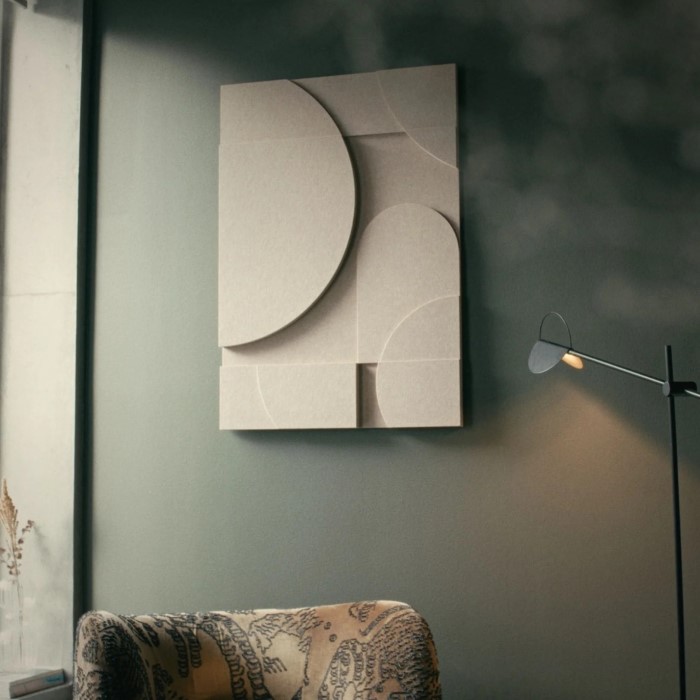When it comes to home decor, every piece of furniture and accessory plays a critical role in creating a cohesive and inviting space. One often overlooked yet significant item is the wall clock. A wall clock is not just a practical tool for keeping time; it also serves as a style statement that can enhance the overall aesthetic of a room. In this article, we will explore the importance of wall clocks in home decor, focusing on their functionality, variety of styles, impact on room ambiance, and tips for choosing the perfect wall clock for your space.
The Functional Aspect of Wall Clocks
Why Time Management Matters
Time management is a crucial aspect of modern life. In our fast-paced world, being aware of the time helps us stay organized, meet deadlines, and maintain a balanced schedule. A wall clock is an efficient tool for timekeeping that serves to remind us of the importance of punctuality. Unlike smartphones or other digital devices, a wall clock offers a constant and unobtrusive reminder of time passing, allowing us to manage our time better throughout the day.
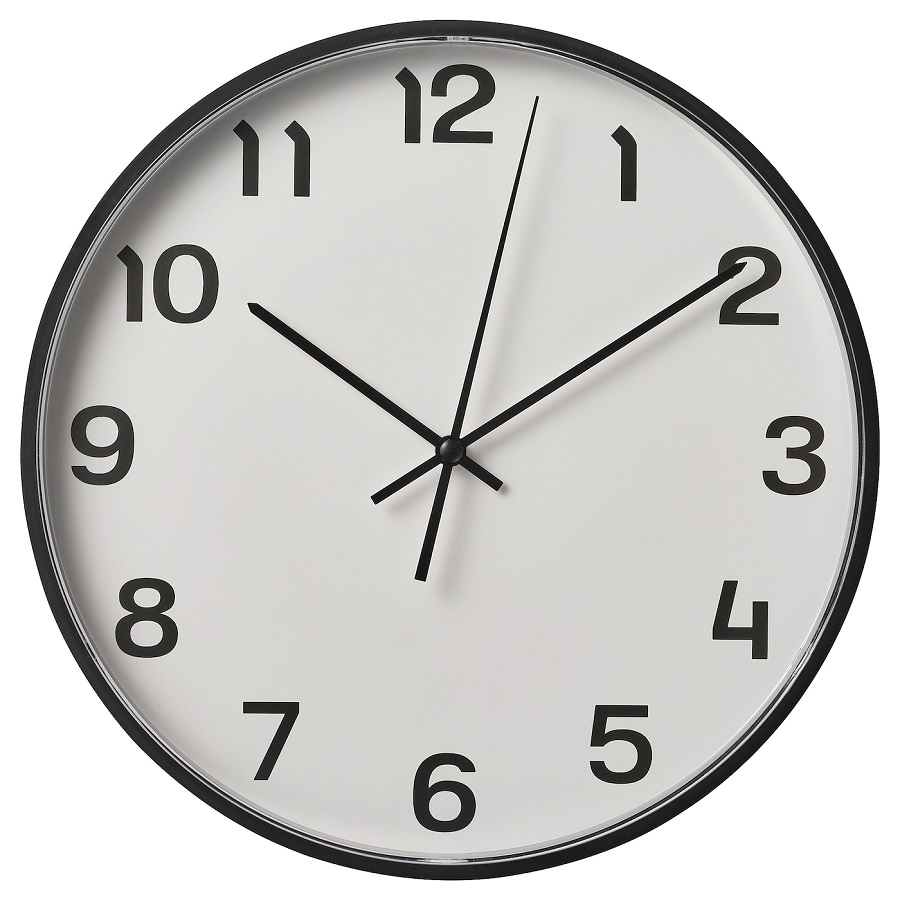
Practicality Meets Design
Beyond their functional benefits, wall clocks also contribute to the practical aspects of home decor. They help create focal points within a room and can draw the eye to specific areas, enhancing the overall design of your home. For instance, a large, ornate wall clock can serve as a centerpiece above a mantel or sofa, while a minimalist clock can subtly complement a contemporary space. By choosing a clock that reflects your personal style, you not only keep track of time but also reinforce your home’s design ethos.
Creating a Routine
In addition to their practical functions, wall clocks can also serve as a gentle nudge to maintain routines. Seeing the time displayed prominently can encourage us to stick to our daily schedules, whether that means starting work, preparing meals, or winding down for the evening. Having a visually appealing wall clock can motivate family members to engage with time, ensuring that everyone stays on track and respects shared household schedules.
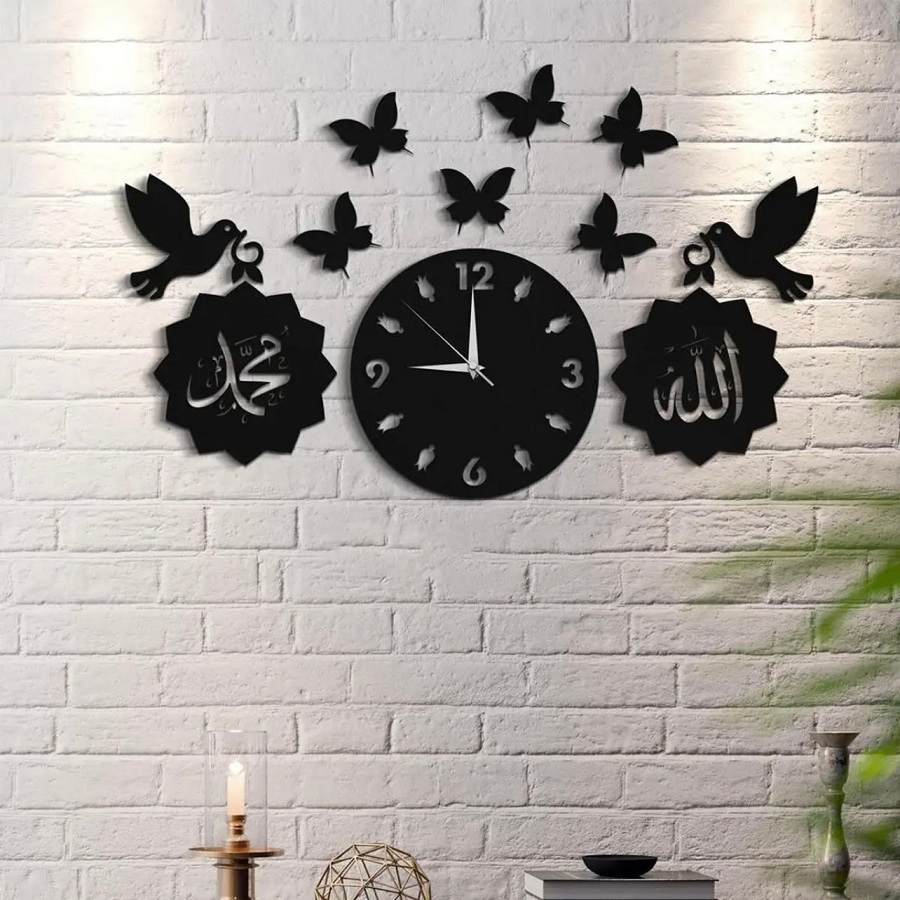
The Aesthetic Appeal of Wall Clocks
A Design Statement
Wall clocks are more than mere functional devices; they are also a crucial element of design. With countless styles, materials, and colors available, a wall clock can either blend seamlessly into your decor or stand out as a statement piece. For instance, a vintage wooden clock can evoke a sense of nostalgia and warmth, while a sleek, modern clock made of metal can impart a contemporary edge to your space.
Material Matters
The material of a wall clock can significantly impact its aesthetic appeal. Clocks made of wood can add a rustic charm to a room, while glass or acrylic options offer a sleek, modern look. Metal clocks can range from industrial chic to elegant and sophisticated, depending on their finish. Each material brings its unique vibe to your decor, allowing you to express your personal style.
Color Coordination
Color plays a vital role in home decor, and wall clocks offer a fantastic opportunity to incorporate complementary or contrasting colors. A brightly colored clock can add a pop of color to a neutral room, while a monochromatic clock can maintain a more understated aesthetic. When choosing a clock, consider how its colors will harmonize with your existing decor to create a cohesive look.
Wall Clocks as Focal Points
Drawing the Eye
In interior design, focal points are essential for guiding the viewer’s attention and creating a balanced composition within a space. Wall clocks can serve as effective focal points due to their size and visual presence. A large, eye-catching clock can dominate a wall and draw attention, while smaller clocks can be arranged in clusters to create a more dynamic display.
Complementing Other Decor Elements
Wall clocks can also complement other decorative elements within a room. For instance, a clock hung above a console table can coordinate with vases, artwork, and other accessories, creating a cohesive and curated look. This interplay of different decor items enhances the overall ambiance of the space and helps establish a specific theme or mood.
Establishing Themes
The style of a wall clock can also help to reinforce the theme of a room. For example, a vintage clock may suit a farmhouse or rustic theme, while a geometric clock could enhance a modern, minimalist aesthetic. By choosing a clock that aligns with your decor theme, you can further solidify the overall design of your space, ensuring that each element works harmoniously together.
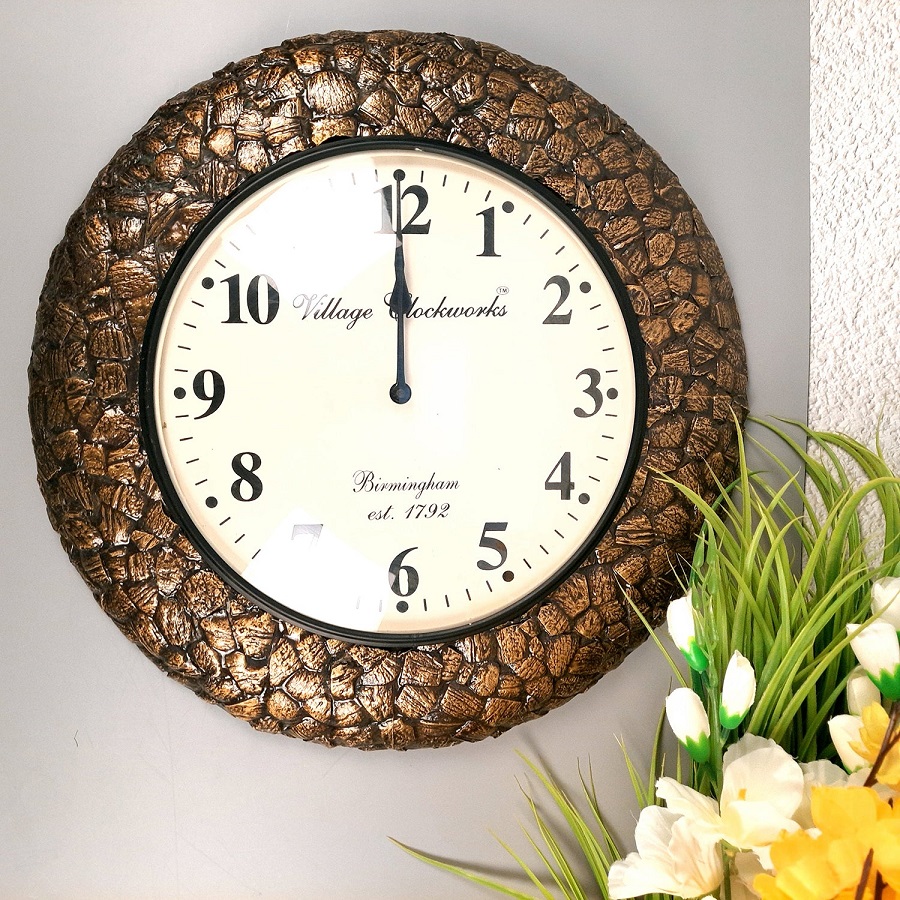
Types of Wall Clocks and Their Styles
Traditional Wall Clocks
Traditional wall clocks often feature ornate designs, wooden finishes, and classic Roman numerals. These clocks evoke a sense of nostalgia and charm, making them perfect for homes that embrace a vintage or rustic aesthetic. They can be used effectively in dining rooms, living rooms, or even bedrooms, adding a touch of elegance to the decor.
Modern and Minimalist Clocks
On the other end of the spectrum, modern and minimalist clocks focus on clean lines and simplicity. These clocks often use materials such as metal, glass, and acrylic and feature bold colors or stark contrasts. They are ideal for contemporary spaces, serving as sleek and functional decor pieces that do not overwhelm the design.
Unique and Artistic Clocks
For those looking to make a statement, unique and artistic wall clocks can serve as conversation starters. These clocks may feature abstract designs, unconventional shapes, or even integrated artwork. By choosing a unique clock, homeowners can express their personality and individual style, turning a functional object into a piece of art.
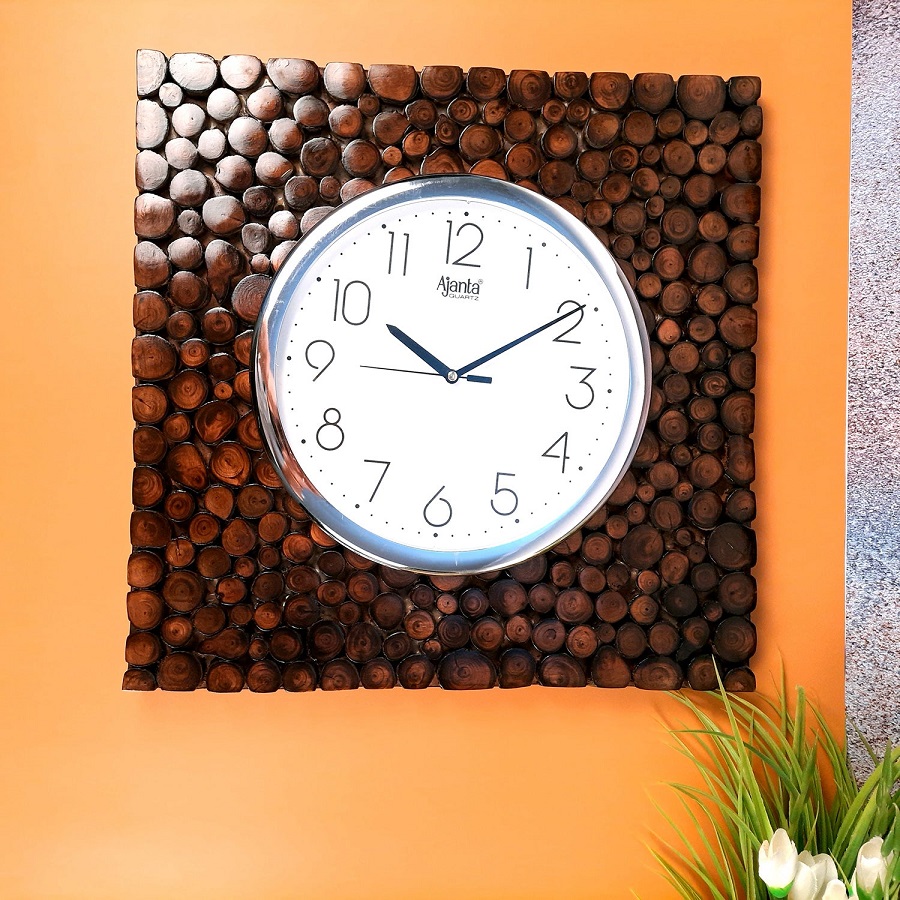
The Psychological Impact of Timekeeping
Creating a Sense of Order
Having a wall clock in your home can create a sense of order and structure in your daily life. The consistent presence of timekeeping can help alleviate stress, making you feel more in control of your schedule. This psychological benefit is particularly relevant in spaces such as home offices, where productivity and focus are essential.
Enhancing Productivity
Studies have shown that being aware of the time can enhance productivity. A wall clock serves as a constant reminder of deadlines and schedules, encouraging individuals to stay on task. In a home office or study, a well-placed clock can help maintain focus, ultimately improving efficiency and performance.
Encouraging Mindfulness
Having a clock in your living space can also promote mindfulness. When you’re aware of the time, you’re more likely to engage with the present moment rather than getting lost in distractions. A well-designed wall clock can serve as a beautiful reminder to take a step back, breathe, and appreciate the time you have.
Tips for Choosing the Right Wall Clock
Consider Your Space
When selecting a wall clock, it’s essential to consider the size and scale of your space. A large clock can make a bold statement in a spacious room, while smaller clocks may be more appropriate for intimate areas such as bedrooms or cozy nooks. Take measurements of your wall space to ensure your clock fits well within the context of your decor.
Matching Your Decor Style
As discussed earlier, the style of your wall clock should align with your overall decor theme. Take time to analyze your existing furnishings and color palette, ensuring that the clock you choose complements rather than clashes with your decor. Whether you prefer modern, traditional, or eclectic styles, there’s a clock out there that will fit seamlessly into your home.
Functionality vs. Aesthetics
While aesthetics are crucial, functionality should not be overlooked. Consider how you will use the clock. For instance, if you need a clock in your kitchen to help time cooking, you might opt for one with larger numbers for easy visibility. On the other hand, a decorative clock in a living room may prioritize style over function. Striking the right balance between these two aspects is key to making a wise choice.
Maintaining and Caring for Your Wall Clock
Regular Cleaning
To keep your wall clock looking its best, regular cleaning is essential. Dust can accumulate on the clock face and mechanism, affecting its appearance and functionality. Use a soft, dry cloth to wipe down the clock regularly, and avoid using harsh chemicals that could damage the finish. For mechanical clocks, periodic maintenance may be necessary to ensure accurate timekeeping.
Battery Replacement
If your wall clock is battery-operated, it’s crucial to keep an eye on the battery life. A clock that stops working can disrupt your daily routine and diminish its purpose. Regularly check the battery and replace it as needed, especially if you notice the clock running slow or stopping altogether.
Professional Servicing
For vintage or high-end clocks, professional servicing may be necessary. These clocks often require specialized care to maintain their mechanics and ensure they keep accurate time. If you own a valuable clock, consider finding a reputable clockmaker or restoration expert to help with maintenance and repairs.
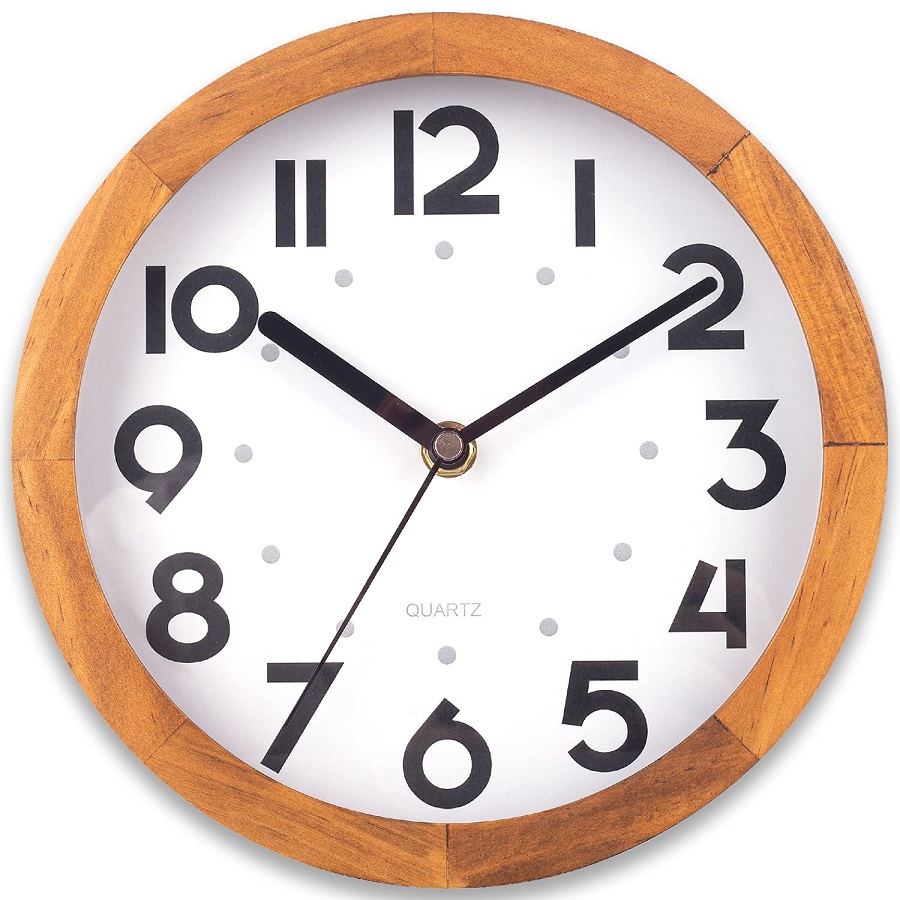
Conclusion: Elevating Your Home Decor with Wall Clocks
In conclusion, wall clocks are far more than mere timekeeping devices; they are essential elements of home decor that combine functionality with style. From traditional to modern designs, wall clocks can enhance any room’s aesthetic and create focal points that draw the eye. They promote mindfulness, productivity, and organization, making them invaluable in today’s busy world. When selecting a wall clock, consider your space, decor style, and the balance between aesthetics and functionality. By choosing the right clock, you can elevate your home decor while ensuring you stay on track with time.
In the world of home decor, every detail counts. A wall clock is a small yet significant addition that can transform your space, providing both beauty and practicality. So, as you curate your home, don’t overlook the importance of a wall clock—it’s a timeless investment that brings style and function to your living environment.





